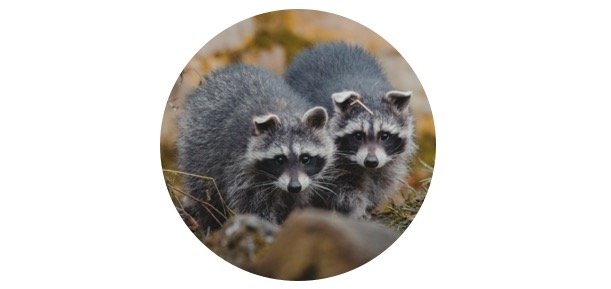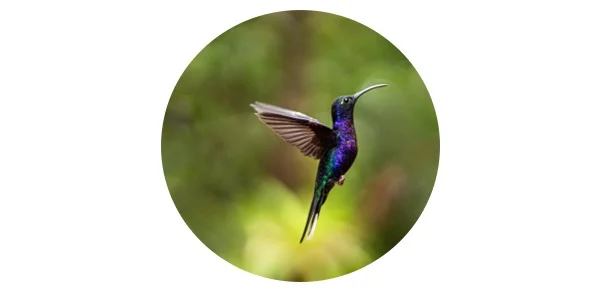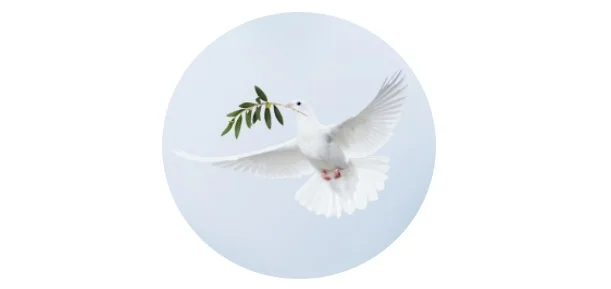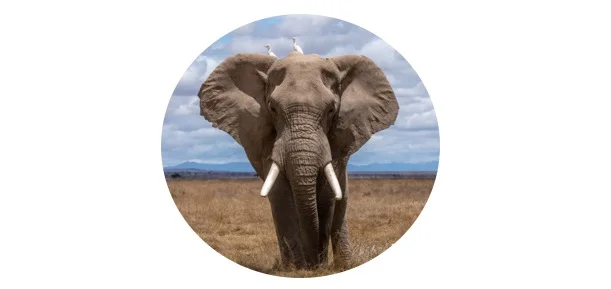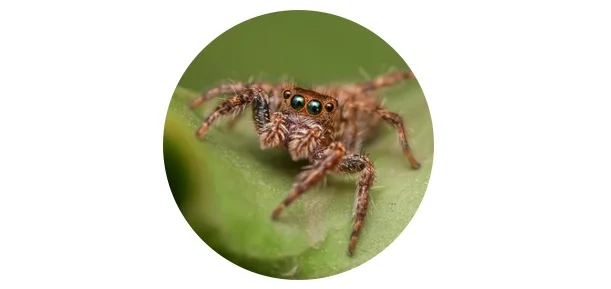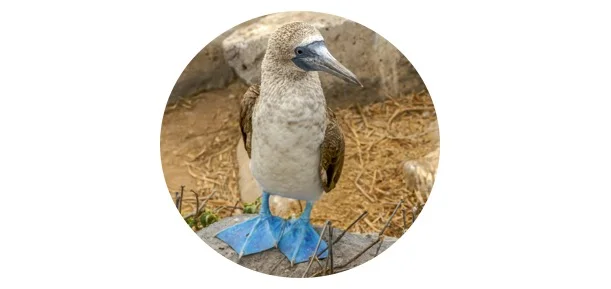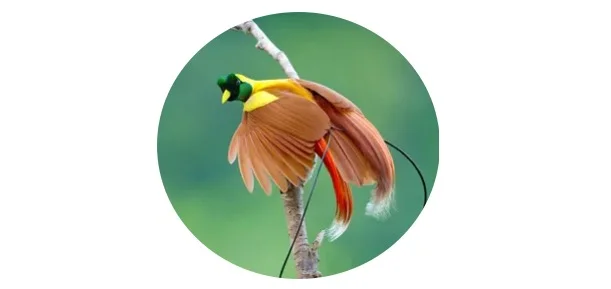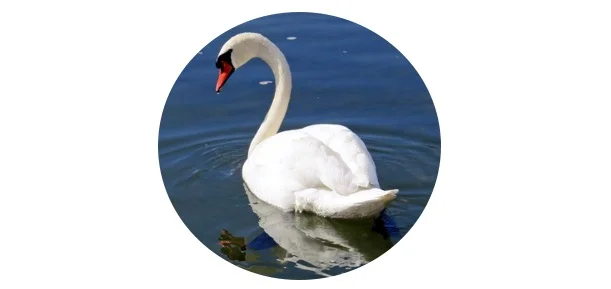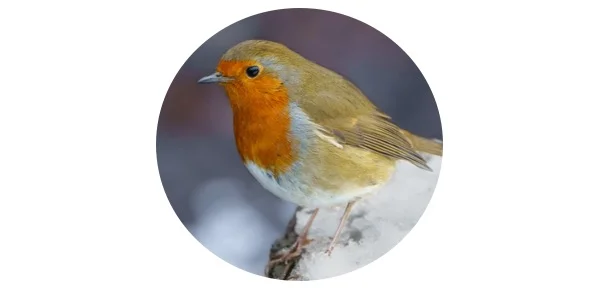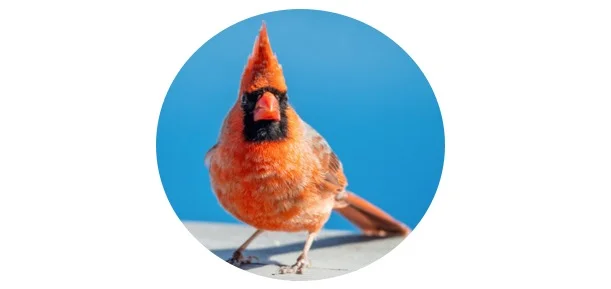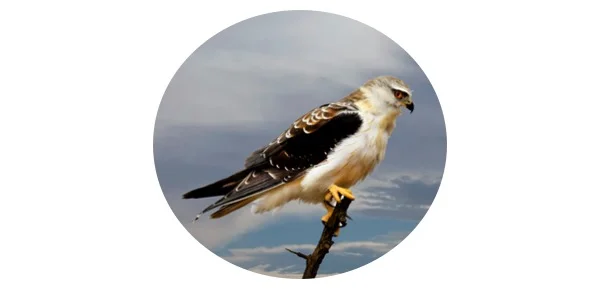Stork Symbolism: Spiritual Meaning, Totem, Spirit, & Omens
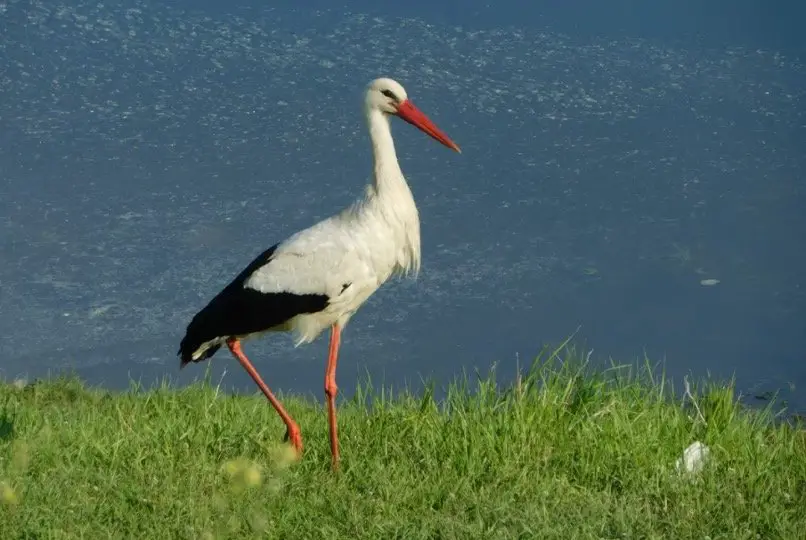
Table of Contents
Stork Symbolism: All You Need To Know
There are birds that seem to have had a significant effect on human societies; birds that have invaded our language, symbols, and emotions. These birds, such as the calm dove, the trickster jay, and the majestic peacock, elicit a powerful feeling of significance in humans. We know what these birds imply when they come to us because of idioms, tales, or myths.
The stork stands out as one of the most significant birds. We immediately conjure up pictures of birth and family, of infants being delivered into the arms of their overjoyed parents. But why do storks symbolize these things to us, and what more can we learn from these magnificent birds?
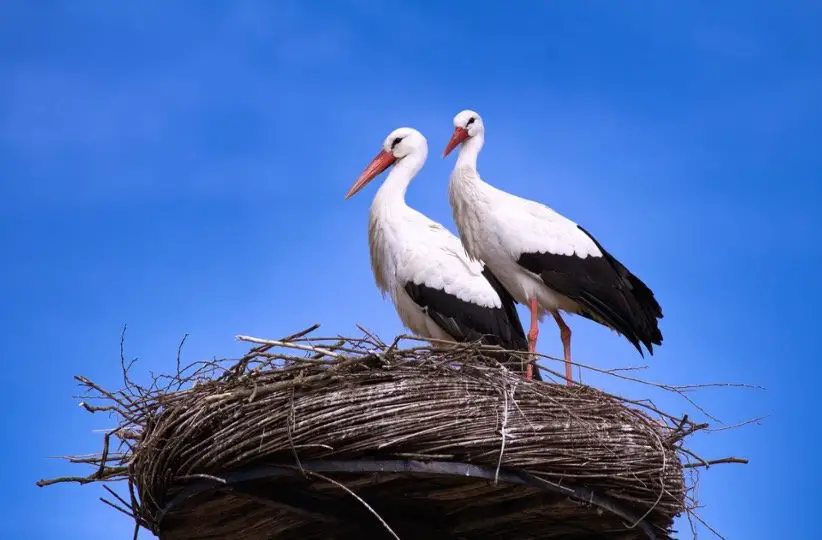
The term “stork” refers to the Ciconiidae family of big wading birds. They are huge, long-legged birds with long necks and broad, sturdy beak. For thousands of years, they have been a prominent presence in folklore and literature, even appearing several times in Aesop’s tales.
Because of the popular picture of the stork bringing a new member to the family, their most prevalent link is with birth. This motif occurs in Disney films and greeting cards, and it seems to have originated in Ancient Greece. If this famous bird is your spirit animal, birth and renewal may be only two of the many metaphorical connotations storks may have for you.
Symbolism and Meaning
The metaphorical significance of storks varies by culture, with birth and regeneration being the most common interpretation. There are, nevertheless, many traditions, myths, and symbolism associated with storks.
Storks are often associated with families. Although birth is the most obvious evidence of their bond, they also represent loyalty and passion. Storks are viewed as birds that embody the personal link of a love engagement since they are serial monogamists and will, in certain circumstances, return to the same mate year after year.
Their proclivity to build enormous nests in order to raise their young represents the extraordinary closeness of the loving bond between parents. Storks are mostly quiet birds.
They lack a completely functional syrinx, which is the avian counterpart of a larynx with voice chords. The only noises they produce are hissing and clacking. As a result, storks are often associated with mutism, solitude, or introversion.
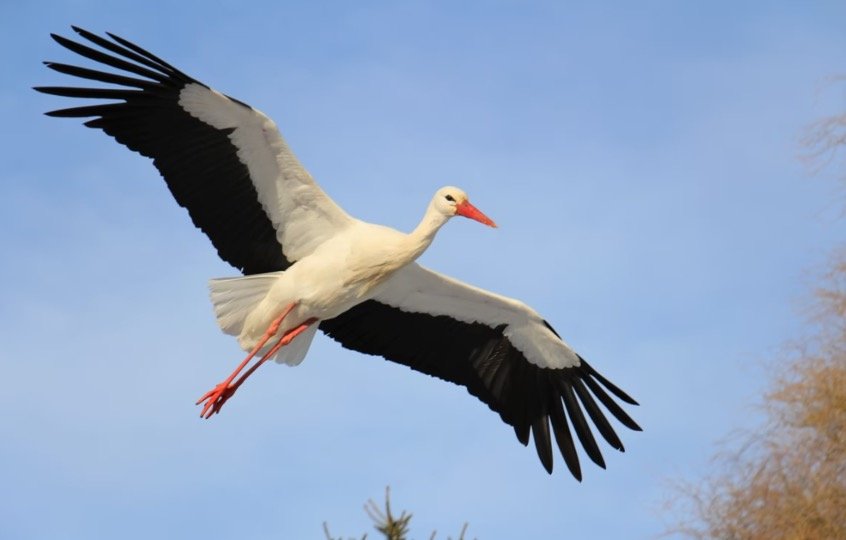
What Do Storks Symbolize?
One of the fascinating aspects about storks is that, with a few exceptions, their symbolic connotations are virtually the same throughout civilizations. They are cheerful, fortunate, and protective, and they symbolize family ties. This is true in so many civilizations that one has to ask whether the storks themselves are filled with good intentions.
Stork Native American Symbolism
In Native American cultures, the stork represents intelligence and spiritual guidance. There are also Native American tales in which the stork delivers newborns, like in many other civilizations.
Stork Christian Symbolism
Storks were frequently described as snakes’ foes in Greek mythology. They were regarded serpent predators, and Aristotle described their importance as follows: “There are rumours that live snakes are born in such large numbers in Thessaly that if they were not devoured by storks, people would have to flee their houses.”
Storks are so highly prized, and it is illegal to kill them. Anyone who does so is charged with a capital crime, much like murder.” Since a result, storks signify protection against evil for Christians, as the snake is often represented as a source of evil and deception. This, together with their (typically) white feathers and nesting behaviours, links them to purity.
Furthermore, the Romans saw storks as being especially kind to the elderly, particularly old parents. A “stork law” was a legislation that required adult children to be responsible for the care of their old parents.
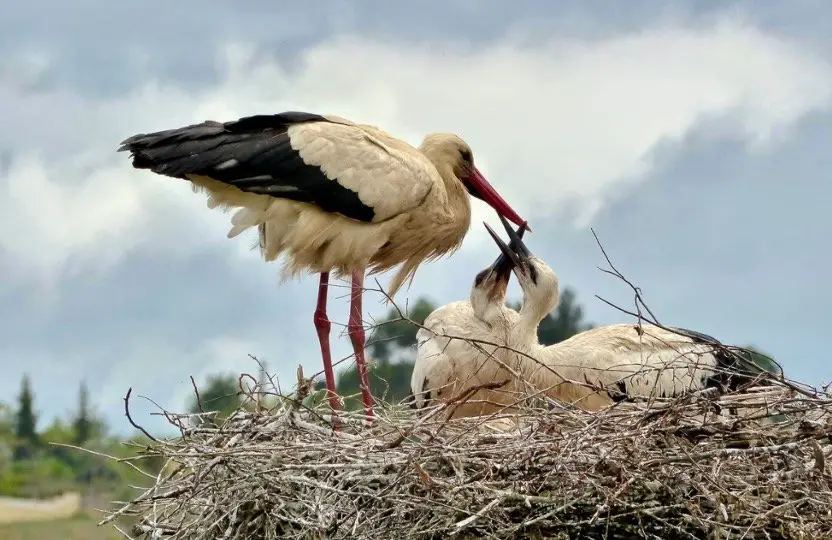
Stork Egyptian Symbolism
The stork signifies the immortal spirit of the human soul in Egyptian beliefs. This might be connected to the saddle-billed stork’s breast marking, which resembles a heart.
Storks in Dreams
Have you had a recent dream in which you saw a stork? The apparent interpretation of such a dream is a symbol of birth, but there might be more to it than that. The significance of a stork in a happy dream differs significantly from the presence of a stork in a bad dream or nightmare.
Anxiety is represented by negative nightmares concerning storks. Because storks are not verbal, a stork nightmare might imply a communication breakdown.
Frustration caused by the impression that you are not being heard might be the genesis of such a dream. Because storks are associated with the house and family, it is probable that an unpleasant dream involving storks represents stress in the home setting.
This might allude to fear of being alone in the future, a desire to create a more secure household, or underlying turbulence in your family ties. Storks are particularly representative of the link between parents and children.
This is true not just in the case of newborns. Storks often symbolize the role reversal that happens when ageing parents must depend on their adult offspring for care. Dissatisfaction in a parent-child connection might lead to bad nightmares involving storks.
Positive stork dreams quickly conjure up visions of a burgeoning family. They may represent good fortune and success for couples trying to conceive. A favourable dream about storks, in general, indicates that the dreamer feels upbeat about the future.
Furthermore, since storks are thought to hunt on serpents, the stork may signify victory over hardship as well as the purifying of one’s life from bad spirits or negative influences.
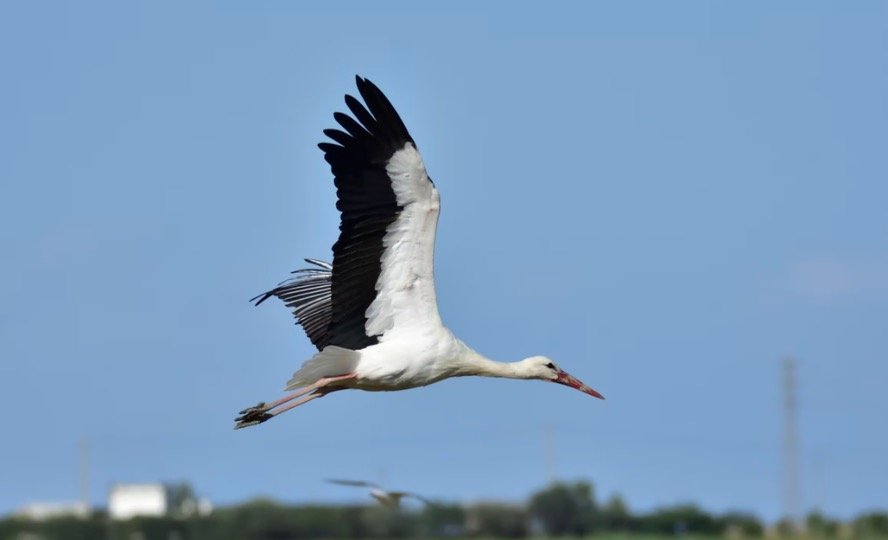
Stork Encounters and Omens
Stork sightings are frequently considered lucky. Storks are reported to arrive at the rooftops of people who are about to have a new baby in their household. It is very fortunate if a stork visits your house.
Storks are a cleansing force that repels bad intentions. A stork visiting the house symbolizes a peaceful family life devoid of dispute and negative energies. Meeting a stork may signify the necessity for an elderly person to depend on the care of younger family members.
The sight of the stork may be a message to you to put your confidence in your loved ones to look after you. For younger individuals, seeing a stork may be a sign that the time has come to start constructing your house.
Storks build massive, imposing nests in which to rear their young. A meeting with a stork may indicate that it is time to start creating your own nest! For those who are not very family-oriented, the stork may simply symbolize regeneration. They have been linked to the arrival of spring and the sense of regeneration.
Storks in Mythology & Folklore
The legend of storks carrying infants is far older than you would assume. The stork was associated with fertility and motherhood by the Ancient Greeks via the goddess Hera. This link survived across Europe and was common in Slavic and Germanic mythology. Storks is a short tale written by Hans Christian Andersen, the author of The Little Mermaid, about these baby-bearing storks.
Storks in Native American Mythology
A Sioux legend tells of a brave youngster called White Plume who is an adept marksman. White Plume hunts with three different arrows. He used these to track down three wicked witch spirits who terrorize a neighbouring community.
White Plume is associated with storks, since his narrative starts with a stork delivering him to his parents as a newborn. Natural wit, intelligence, and divine direction propel White Plume to triumph against the trickster spider throughout the narrative.
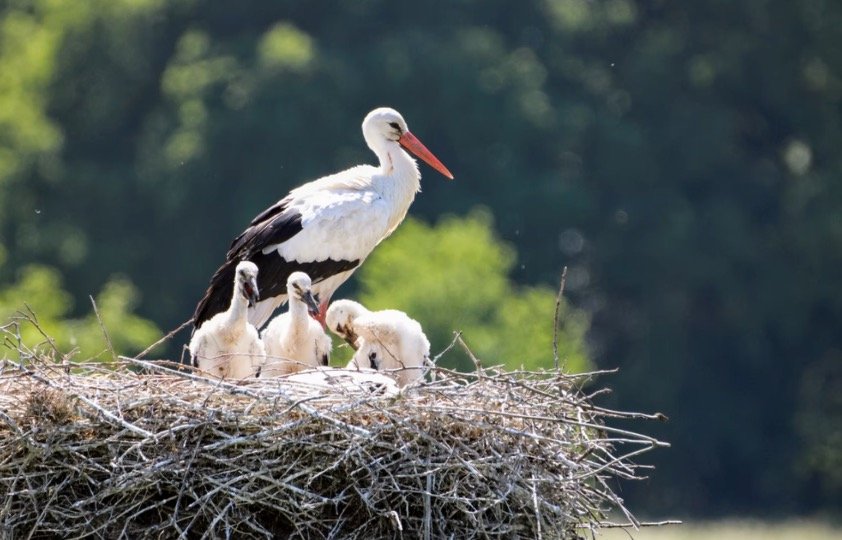
Storks in Egyptian Mythology
The “Ba” is one of the three components of the soul in Egyptian mythology. This “Ba” is shown as a stork. As previously noted, some think this is due to the saddle-billed stork’s heart-shaped markings on its breast.
Storks in Greek Mythology
Storks are associated with the goddess Hera in Greek mythology. Marriage, monarchy, childbirth, fertility, and motherhood are all connected with Hera. In one of Ovid’s Metamorphoses stories, a young lady called Antigone boasts that her hair is more lovely than Hera’s. Hera, enraged by this assertion, transforms Antigone’s hair into snakes.
Antigone is transformed into a stork by another deity, who feels sorry for her. This narrative nicely links to Aristotle’s thesis that storks are a valuable species since they hunt on snakes. Storks may also be seen in a handful of Aesop’s stories. The most important stork storey teaches the importance of carefully selecting one’s acquaintances.
Stork Spirit Animal
If the stork is your spirit animal, you are a unique person who values family. Storks are recognized for the strong relationships they create between couples, as well as between parents and their young ones.
These connections are critical for the individual’s relationship with the stork spirit animal. People that have the stork as their spirit animal are frequently sympathetic and emotional. One defect to be aware of is that this emotional tendency may lead to codependency, making the person more susceptible to depleting or one-sided interactions.
People that have the stork as their spirit animal are born nurturers, since they are compassionate. In their Platonic connections, they are often the “mama friend.” People with the stork spirit animal may have difficulty communicating.
Self-expression may not come naturally to them, and as a result, they may find introspection a far more comfortable approach to self-exploration. Because of this propensity, as well as the stork’s loving character, they may find it difficult to stand up for themselves or create and enforce proper limits.
Stork Totem Animal
A person who has the stork as their totem animal will have many of the same characteristics as the stork spirit animal stated above. Individuals with the stork totem are also exceedingly honest.
In truth, the stork totem is not tolerant of deception. People with this totem have an incredible capacity to detect deception and deception, and they will filter out deceivers with zeal.
Despite their antipathy for dishonest individuals, persons with the stork totem may fail to verbalize the falsehoods that they instinctively notice. Because they cannot always convey their insights properly, loved ones must learn to trust the intuition of the stork totem.
Stork Power Animal
As previously indicated, the stork bestows the ability to detect falsehoods on people. Furthermore, the stork’s power is best defined as intuition. Individuals with the stork power animal frequently have an almost supernatural awareness of physical and spiritual peril.
The stork is a great source of protection since they are so firmly linked with purity and defeating evil. This protection is particularly effective when it comes to safeguarding the house and family.
Stork Tattoo Meaning
A stork tattoo is often used to represent family. It might signify a person’s thankfulness for their family or their desire to expand their family. People who get this tattoo may be showing their love for the future generation. A stork tattoo may also signify personal victories against bad forces, particularly evil influences that mislead or exploit benevolence.
Stork Symbolism Conclusion
For most of us, the stork represents happiness and a bright future. Although the symbolism of the stork varies, it speaks to the character of these lovely birds that they are so frequently connected with good things to come. Among positive symbols, this is a one-of-a-kind relationship.
Storks, in particular, tell us that the future will be joyful. They offer us a life of tranquillity, peace, and safety. The most crucial thing that a stork symbolizes is hope. After all, what is a new baby if not an investment in a happy future; a seed planted with hope and nourished with love?
Storks have a particular place in the hearts and minds of humans as deliverers and protectors of this beautiful future.
